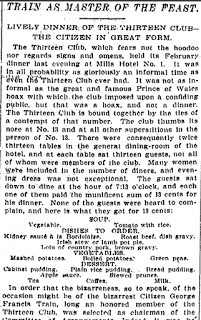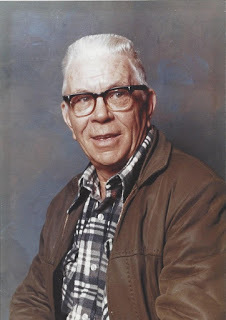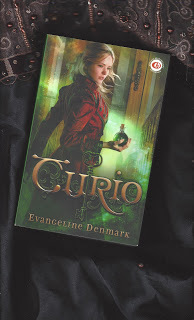R.J. Larson's Blog, page 5
June 2, 2016
Deadline and Tortoise Syndrome
I'm within the last ten chapters or so of finishing The Blessing--a story that I've loved and looked forward to writing ever since 2010.
 Blessing Bunny Trail
Blessing Bunny Trail
I should be sprinting toward that finish line at a record-breaking pace, right?
Not so.
I'm plodding along like Aesop's proverbial Tortoise, mulling over each scene, leafing through research and idling at odd moments to check out all the bunny trails along the way. In other words, I'm procrastinating. Why?
I could plead "Spring fever". Today was a gorgeous day, offering fresh green grass, cerulean blue skies and cotton-puff clouds that enticed me to stare out the window at the end of each sentence. But I didn't walk outside to soak in all that beauty, so I can't blame the glorious spring weather. I dawdled today over cooking, making chicken curry stew and a coconut pie--my family does have to eat. True. However, the fridge is packed with leftovers. I could declare a weeklong cook's vacation and we wouldn't starve.
Social networking, answering emails, the day job, and household tasks are contributing to my Tortoisian slothfulness, but none of these are overwhelming tasks. Oh, and LOOKEE, I decided to blog this evening, rather than open Chapter 31 and dig in.
I can't blame The Blessing, because I struggle with this syndrome at the end of each story. As the characters in my imagination are cheering and chanting because the finish line is in sight, I linger and loiter through the last few chapters of each book.
Once the story is finished, it's essentially done.
Finis.
I can't like that, because it means bidding beloved characters farewell.
Conclusion: I stink at saying "Goodbye."
But like the proverbial tortoise, I will reach that finish line and savor the victory. Soon.
After I watch another cooking show. Hehehe!
Blessings, Dear Everyone.
 Blessing Bunny Trail
Blessing Bunny TrailI should be sprinting toward that finish line at a record-breaking pace, right?
Not so.
I'm plodding along like Aesop's proverbial Tortoise, mulling over each scene, leafing through research and idling at odd moments to check out all the bunny trails along the way. In other words, I'm procrastinating. Why?
I could plead "Spring fever". Today was a gorgeous day, offering fresh green grass, cerulean blue skies and cotton-puff clouds that enticed me to stare out the window at the end of each sentence. But I didn't walk outside to soak in all that beauty, so I can't blame the glorious spring weather. I dawdled today over cooking, making chicken curry stew and a coconut pie--my family does have to eat. True. However, the fridge is packed with leftovers. I could declare a weeklong cook's vacation and we wouldn't starve.
Social networking, answering emails, the day job, and household tasks are contributing to my Tortoisian slothfulness, but none of these are overwhelming tasks. Oh, and LOOKEE, I decided to blog this evening, rather than open Chapter 31 and dig in.
I can't blame The Blessing, because I struggle with this syndrome at the end of each story. As the characters in my imagination are cheering and chanting because the finish line is in sight, I linger and loiter through the last few chapters of each book.
Once the story is finished, it's essentially done.
Finis.
I can't like that, because it means bidding beloved characters farewell.
Conclusion: I stink at saying "Goodbye."
But like the proverbial tortoise, I will reach that finish line and savor the victory. Soon.
After I watch another cooking show. Hehehe!
Blessings, Dear Everyone.
Published on June 02, 2016 18:29
April 16, 2016
While I Was Away
 Six weeks is much too long in between blog posts--I apologize.
Six weeks is much too long in between blog posts--I apologize.Unfortunately, four weeks ago, I was hit with a case of pneumonia that would NOT leave despite three rounds of antibiotics. I feared the pneumonia bugs had decided they loved me and wanted to stay forever.
This week, however, I finally feel that life will continue, and I have energy to write to you!
What was I thinking of while dragging myself from my sickbed to work and back for the past four weeks? My current manuscript, among other things. The Blessing is coming along nicely despite my endless bunny trails in the name of research. Because I am a visual person, I wanted some imagery to study while finishing May Somerville's story, so I raided Shutterstock's endless files and pieced together this rough little (first draft) mockup.
It's not a cover. Not even close.
However, this IS close to what I see when I think of May Somerville standing in the beautiful Colorado mountains near the story's end, finally coming to terms with life's harsh realities.
Don't worry. She's not as tranquil as she seems--this image is missing a rifle. After all, my post-pneumonia creative energy still has its limits! *Sickly author sipping herbal tea.*
Published on April 16, 2016 23:23
February 27, 2016
A God Who Saves
Some stories deserve retelling. My dear FIL's journey is one of them.
 Pop, it's been more than 16 years and we miss you! Looking forward to seeing you again, in His presence.
Pop, it's been more than 16 years and we miss you! Looking forward to seeing you again, in His presence.
A God Who Saves
“I don’t believe in that religion stuff!” my father-in-law scoffed, dismissing all mention of God with a wave of his broad, work-toughened hands.
Pop, at the age of eighty-eight, was a proud, self-reliant German-born American. He insisted that he had seen too much suffering to ever believe that there could be a living, loving God. Pop had barely survived the aftermath of World War I as a child in his native Hamburg. In an attempt to escape from his memories of disease and starvation, and certain that he would “strike it rich,” Pop immigrated to the United States in October, 1929. Two weeks later, the stock market crashed. Pop, along with the rest of the world, was confronted with the Great Depression.
Despite many hardships in the decade that followed, Pop poured all of his German stubbornness into becoming a model American citizen. When World War II broke out, Pop gladly served as a first lieutenant in the United States Army. The brutality of the war affected Pop so deeply that he rarely shared his memories of the buddies he had lost or the atrocities he had witnessed. Hardened and cynical, he scorned the very idea that there could be a God. According to Pop, anyone who actually believed in God was a fool. After the war, Pop devoted himself to the American dream and watched in disbelief as his wife and children, one by one, turned to the God he denied.
“You’ll get over it,” Pop assured his youngest son, my husband, one day as we departed for church. We didn’t get over it. We prayed for Pop instead. For more than twenty years, we prayed. But the trials of old age did nothing to soften Pop’s heart. His temper shortened all the more, and we despaired during his last weeks of life, certain that nothing could ever touch his heart. Many had tried. Our spirits sank all the more when Pop suffered a stroke and began to relive his past aloud. He was oblivious to us then, and we began to mourn. No one could possibly reach Pop now, we reasoned. No one.
For twenty-four hours, Pop lived in his memories, flowing backward through his life until he literally became as a child again. Then, he began to sing in broken English and German, “Jesus loves me, this I know, for the Bible tells me so ….”
We were incredulous, and skeptical. But over the course of the next five days—the last of his life—Pop was transformed. Despite the debilitating effects of his illness, he radiated a pure sweetness that we had never seen before. And he actually said to us, “I love you.”A miracle!
Most wonderful of all, he joyfully affirmed his love of God over and over again.
Indeed, only One could reach him.
 Pop, it's been more than 16 years and we miss you! Looking forward to seeing you again, in His presence.
Pop, it's been more than 16 years and we miss you! Looking forward to seeing you again, in His presence.A God Who Saves
“I don’t believe in that religion stuff!” my father-in-law scoffed, dismissing all mention of God with a wave of his broad, work-toughened hands.
Pop, at the age of eighty-eight, was a proud, self-reliant German-born American. He insisted that he had seen too much suffering to ever believe that there could be a living, loving God. Pop had barely survived the aftermath of World War I as a child in his native Hamburg. In an attempt to escape from his memories of disease and starvation, and certain that he would “strike it rich,” Pop immigrated to the United States in October, 1929. Two weeks later, the stock market crashed. Pop, along with the rest of the world, was confronted with the Great Depression.
Despite many hardships in the decade that followed, Pop poured all of his German stubbornness into becoming a model American citizen. When World War II broke out, Pop gladly served as a first lieutenant in the United States Army. The brutality of the war affected Pop so deeply that he rarely shared his memories of the buddies he had lost or the atrocities he had witnessed. Hardened and cynical, he scorned the very idea that there could be a God. According to Pop, anyone who actually believed in God was a fool. After the war, Pop devoted himself to the American dream and watched in disbelief as his wife and children, one by one, turned to the God he denied.
“You’ll get over it,” Pop assured his youngest son, my husband, one day as we departed for church. We didn’t get over it. We prayed for Pop instead. For more than twenty years, we prayed. But the trials of old age did nothing to soften Pop’s heart. His temper shortened all the more, and we despaired during his last weeks of life, certain that nothing could ever touch his heart. Many had tried. Our spirits sank all the more when Pop suffered a stroke and began to relive his past aloud. He was oblivious to us then, and we began to mourn. No one could possibly reach Pop now, we reasoned. No one.
For twenty-four hours, Pop lived in his memories, flowing backward through his life until he literally became as a child again. Then, he began to sing in broken English and German, “Jesus loves me, this I know, for the Bible tells me so ….”
We were incredulous, and skeptical. But over the course of the next five days—the last of his life—Pop was transformed. Despite the debilitating effects of his illness, he radiated a pure sweetness that we had never seen before. And he actually said to us, “I love you.”A miracle!
Most wonderful of all, he joyfully affirmed his love of God over and over again.
Indeed, only One could reach him.
Published on February 27, 2016 12:47
February 11, 2016
When the Writing Gets Tough ... Remember Love
 Several months ago, I finished writing a fantasy novel and was determined to resume and complete The Blessing, a story I began to write more than five years past as Kacy Barnett-Gramckow.
Several months ago, I finished writing a fantasy novel and was determined to resume and complete The Blessing, a story I began to write more than five years past as Kacy Barnett-Gramckow.It would be so easy, I was sure. I had all my notes, a good story-line, and lively characters ... yes, this story would flow smoothly.
Not so.
In almost every paragraph, I stumbled across odd details requiring research not answered in my notes. My characters, lively as they were, had become like strangers to me. Was it because I'd left them tucked in a dark and hidden file for more than five years?
Chapter after chapter, I wrote the story I'd loved and pledged to finish, but each sentence was like a hard-won skirmish, and each chapter seemed an outright war, leaving me dazed and drained. What was wrong?
Two weeks ago, I realized that although the pace of my research hadn't diminished--I'm overly-obsessive about details and I'll be the first to admit it--the story itself was becoming familiar again, and easier. Better yet, I'd remembered the one necessary ingredient I'd forgotten: love.
Yes, I'd fallen in love with my characters all over again. Every sweetheart, stinker, and Person-of-Questionable-Character. In return, my characters began to talk to each other, and to me, sharing their secrets, and opening up new subplots I'd failed to consider years ago. The Blessing has once again become pure joy despite its serious subject matter.
Is your writing dragging? Would you rather stomp outside and kick rocks than face another paragraph? Take a deep breath, calm yourself, and remember love.
Published on February 11, 2016 22:16
December 27, 2015
Writing Controversy (Redux)
Writing Controversy*Redux. First posted on Backing Books Blog, 12-8-2015.
byR. J. Larson
 My latest work, Valor, is based in part on the much-debated, controversial text from Judges 11:30-40, concerning Jephthah and his courageous daughter. Their story stirred my imagination from the first time I read it as an eight-year-old. I remember staring at the page in my Children’s Bible, greatly distressed and seriously resenting that particular story’s ending. Why had that girl’s father made such a rotten vow? Why had she agreed to fulfill her father’s vow—couldn’t she have run away? (No, I was never tempted to run away from home when I was a child, just sayin’.) But I wished I could change the ending for her.Fast-forward decades later. Last year, while I was writing Queen (inspired by Esther and other scriptures set in a fantasy realm) it occurred to me that the Agocii lands were an almost ideal place to present the story of Jephthah and his daughter. Much as Israel during the time of Judges—when there was no king, but each person did what was right in his own eyes, when pagan beliefs and customs surrounded those who followed the Lord, and when wars and conflicts presented themselves at every turn—the Agocii reflected spiritual and social turmoil similar to Israel’s during the time Judges. It seemed a perfect place to present Jephthah’s story.
My latest work, Valor, is based in part on the much-debated, controversial text from Judges 11:30-40, concerning Jephthah and his courageous daughter. Their story stirred my imagination from the first time I read it as an eight-year-old. I remember staring at the page in my Children’s Bible, greatly distressed and seriously resenting that particular story’s ending. Why had that girl’s father made such a rotten vow? Why had she agreed to fulfill her father’s vow—couldn’t she have run away? (No, I was never tempted to run away from home when I was a child, just sayin’.) But I wished I could change the ending for her.Fast-forward decades later. Last year, while I was writing Queen (inspired by Esther and other scriptures set in a fantasy realm) it occurred to me that the Agocii lands were an almost ideal place to present the story of Jephthah and his daughter. Much as Israel during the time of Judges—when there was no king, but each person did what was right in his own eyes, when pagan beliefs and customs surrounded those who followed the Lord, and when wars and conflicts presented themselves at every turn—the Agocii reflected spiritual and social turmoil similar to Israel’s during the time Judges. It seemed a perfect place to present Jephthah’s story.I chose the warrior Vsevold from Queen as my fantasy-realm Jephthah, and with Aniya’s name chosen for his daughter by a friend, I turned my attention to researching the verses which had distressed me when I was a child. Almost immediately, I found numerous web sites citing the debate over Jephthah’s story. The original Hebrew of the text is a marvelous multilayered and versatile language, which often conveys multiple meanings. In Jephthah’s case, this meant that his story, and mine, had two potential and equally defensible possible endings. First, as the most basic and straightforward translations suggest, Jephthah could have actually sacrificed his daughter as he vowed. Or, according to the nuances of some of the Hebrew words in those verses, Jephthah might have dedicated her to the Lord—to serve the Lord’s House, some of the debaters insisted, to live the remainder of her life unmarried and a virgin. The dedication theory also sets aside any quandaries concerning Jephthah’s hero-status mentioned in Hebrews 11, placing Jephthah in the company of Gideon, Barak and Samson.
Could Jephthah’s daughter have survived the threat of sacrifice? I certainly hoped so. Whatever happened, I knew above all that the Lord abhorred human sacrifice, and this must play out strongly in Valor. I dug through the debates and accompanying commentaries, and found several mentions from different sources that the “dedication” theory had first been presented in the early middle ages when it was common for women to become nuns, never marrying in order to serve the Lord. While that gave me pause during research, I still found merit in both sides of the debate.
After reading all the debates, looking up the Hebrew root words, and studying the circumstances surrounding the book of Judges, I had to make a decision. My main hesitations were:1. Deuteronomy 23:3. (An illegitimate man many not enter the assembly of the Lord, nor many his descendants down to the tenth generation.) Jephthah and his daughter were considered ceremonially unclean due to the unfortunate circumstances surrounding his birth, therefore she couldn’t have served in the Lord’s House as some Dedicated theorists argued. (Though she could have been isolated for the remainder of her life, unwed and a virgin.)2. The apparently late emergence of the dedication theory. 3. Numbers 30:2. (If a man makes a vow to the Lord or takes an oath and obligates himself by his own word, he must not break his word. He must do everything he said.)Even if that vow displeased the Lord? This made me hesitate.Certainly the Lord would never approve of human sacrifice. Therefore … and yet ….Being fallible as so many other leaders from the Scriptures, such as David, Samson, and Abraham, could Jephthah (within the chaotic framework of his times) have fallen prey to a rash and desperate vow in an attempt to bargain with the Lord, when faith in the Lord’s provision for victory would have been enough? Could Jephthah have committed a terrible sin, yet still be regarded as righteous based solely on the fact that he believed in and followed the Lord?
No matter which way the book might end, it would not be happy.
After weighing both sides of the controversy, I wrote Valor, praying through each chapter. Was it easy? No. Yet I hope you’ll enjoy the story and love the characters as I do.
Blessings,R. J.
Published on December 27, 2015 18:47
November 30, 2015
Shameless Plug for Curio promotion
In 2010, while I was writing Prophet, I joined a critique group led by a dear friend, the amazing Donita K. Paul, author of Dragonspell. Donita's daughter, Evangeline Denmark, also joined the group and shared an unpublished manuscript she was working on. Evangeline's skill with words and her vivid imagination instantly drew me into her story, and I knew that soon a wise editor would read Evangeline's work and snatch up her stories for some lucky publisher.
 "Soon" in the publishing world takes a while, but at last the time is near! Evangeline's book, Curio, will hit the shelves in January and I'm reading it now. (Yes!) Curio is a steampunk-inspired mixture of whimsy and menace guaranteed to lure YA readers into Evangeline's intricately fashioned fantasy storyline.
"Soon" in the publishing world takes a while, but at last the time is near! Evangeline's book, Curio, will hit the shelves in January and I'm reading it now. (Yes!) Curio is a steampunk-inspired mixture of whimsy and menace guaranteed to lure YA readers into Evangeline's intricately fashioned fantasy storyline.
To celebrate, Evangeline's publisher, Blink, is offering a set of 3 charms with each pre-published purchase. If you've been eyeing this book, now is the time to buy!
Here are the details: http://www.evangelinedenmark.com/
And don't forget to snatch a free e-copy of Evangeline's Mark of Blood and Alchemy, the prequel to Curio!
 "Soon" in the publishing world takes a while, but at last the time is near! Evangeline's book, Curio, will hit the shelves in January and I'm reading it now. (Yes!) Curio is a steampunk-inspired mixture of whimsy and menace guaranteed to lure YA readers into Evangeline's intricately fashioned fantasy storyline.
"Soon" in the publishing world takes a while, but at last the time is near! Evangeline's book, Curio, will hit the shelves in January and I'm reading it now. (Yes!) Curio is a steampunk-inspired mixture of whimsy and menace guaranteed to lure YA readers into Evangeline's intricately fashioned fantasy storyline.To celebrate, Evangeline's publisher, Blink, is offering a set of 3 charms with each pre-published purchase. If you've been eyeing this book, now is the time to buy!
Here are the details: http://www.evangelinedenmark.com/
And don't forget to snatch a free e-copy of Evangeline's Mark of Blood and Alchemy, the prequel to Curio!
Published on November 30, 2015 12:08
November 16, 2015
Dreaming while writing
 Not quite focused ... and that's okay.While I'm finally writing my beloved 1890's historical (as Kacy Barnett-Gramckow) I'm already dreaming of future projects. Is it too soon to allow my thoughts to stray toward future castles in the clouds? Hopefully not!
Not quite focused ... and that's okay.While I'm finally writing my beloved 1890's historical (as Kacy Barnett-Gramckow) I'm already dreaming of future projects. Is it too soon to allow my thoughts to stray toward future castles in the clouds? Hopefully not!This dreamstate is the most creative point in my writing process. All potential "What-if"s are still on the table, and everything, everything is possible. I'm not yet getting the full picture, nor am I seeing my characters in their personal realm. However, I am glimpsing their realm, and right now, it's lovely.
Yet even in this hazy sunlit dream, I'm studying that mist below. Those shadows ... the dark places within and perhaps beneath that castle. What secrets might dwell there? I'm eager to explore this new realm and find out, in due time.
Right now, I'm just enjoying this potential story in its unformed dreamstate. Even as I'm telling myself, "Enough! Get back to work. Write."
Blessings, Dear Everyone!
Yours,
R. J. and Kacy
Published on November 16, 2015 20:45
October 23, 2015
Scene Stealers
 Characters who steal scenes.
Characters who steal scenes.As an author, I love all of my characters--good, bad, horrid, awesome--they're my babies, and I relish the instant when a supporting character steps into his or her role with zeal, bringing the plotline to life. They're the characters who light fires, challenge the protagonists, and fight for their own ideals every step of the way, sometimes unleashing epic struggles.
Did someone mention Scythe? (Also known as "Pet" from Prophet.)
 While such characters do add wonderful life to stories, and sometimes provide much-needed comic relief, they present a charming danger to every plotline, even affecting the way that readers might eventually feel about your main character, whom you also love as a parent-author.
While such characters do add wonderful life to stories, and sometimes provide much-needed comic relief, they present a charming danger to every plotline, even affecting the way that readers might eventually feel about your main character, whom you also love as a parent-author.They become major scene-stealers, and it's not always a good thing. In Valor, a vibrant supporting character was threatening to completely overshadow the female main character, whose introverted nature made her vulnerable to fading away in the lesser character's glow. By the third chapter, I was consciously "shushing" the lesser character to allow my main female lead to speak for herself, and allow the reader to live in her quiet but no less admirable thoughts. (Dear character kids, you really do have to share the scenes!)
Fortunately, in Valor, my supporting character understood perfectly. As for Scythe/Pet in Prophet ... well, yes, he's another story.
Blessings, Dear Everyone!
Image: Shutterstock.
Published on October 23, 2015 13:33
October 7, 2015
Valor Cover
 Valor CoverAt last, we have a cover image for Valor, the seventh volume in the Books of the Infinite stories!
Valor CoverAt last, we have a cover image for Valor, the seventh volume in the Books of the Infinite stories!Valor was inspired by Judges, chapter 11, specifically, the tragic story of Jephthah and his heroic daughter--verses from the Scriptures, which distressed and absorbed me when I first read them at age eight.
For readers of the Books of the Infinite, Valor is set in Agocii lands, which is perfect for unfolding this tragic story, so horrifically bound by its own times, traditions, and laws, as well as eternal expectations.
Yes, you might cry--never say I didn't warn you--but I pray that Valor will leave you with hope!
Blessings, Dear Everyone! You are in my prayers.
Published on October 07, 2015 13:09
October 3, 2015
Quiet Characters
 Not long ago, a reader sent me an email--YAY!--listing his favorite characters thus far in the Infinite series.
Not long ago, a reader sent me an email--YAY!--listing his favorite characters thus far in the Infinite series.1. Bryce, the dauntless household steward turned spy in Judge.
2. Tsir Aun, the calm, efficient commander in Prophet.
3. Pet/Scythe, the ever-hungry monster warhorse in Prophet, Judge, and King, who is not, I repeat NOT, based on Maximus from Tangled. (Prophet was on my editor's desk months before Tangled hit the big screens. I bought tickets to Tangled, enjoyed the show, bought the dvd, and told DH, "I'll receive mail asking about Max/Scythe." Sure enough.)
I was intrigued by this list because this reader, Jeff, had chosen two of my favorite supporting characters, Bryce and Tsir Aun. I replied, of course, and asked why these two made the top of his list, and in our ensuing emails, we agreed that Bryce and Tsir Aun were quiet characters. The sort of friends we should all be lucky enough to number among our own. Read more Here.
Ever since this email exchange, I've been pondering Quiet Characters. Why are they important in life and, as a result, in fiction?
I'd like to think of Quiet Characters as the everyday heroes who cross our paths and our Main Characters' paths routinely--calm, efficient, dauntless, honorable and faithful souls who are pleased to remain in the shadows while they work in humble occupations. In short, Quiet Characters provide glue that holds our societies together. This is not to say that Quiet Characters lead boring lives and are content with everyday humdrum. They don't, and they aren't. Didn't Bryce volunteer himself as a spy and infiltrate an enemy army's encampment to aid his own people? Didn't Tsir Aun accept and undertake (honorably and efficiently) a punishing political task after striving mightily to lead his country away from defeat in battle?
Hats off to you, dear Quiet Characters, in life, poems and prose. Life on Earth would be bedlam without you.
Published on October 03, 2015 21:34



